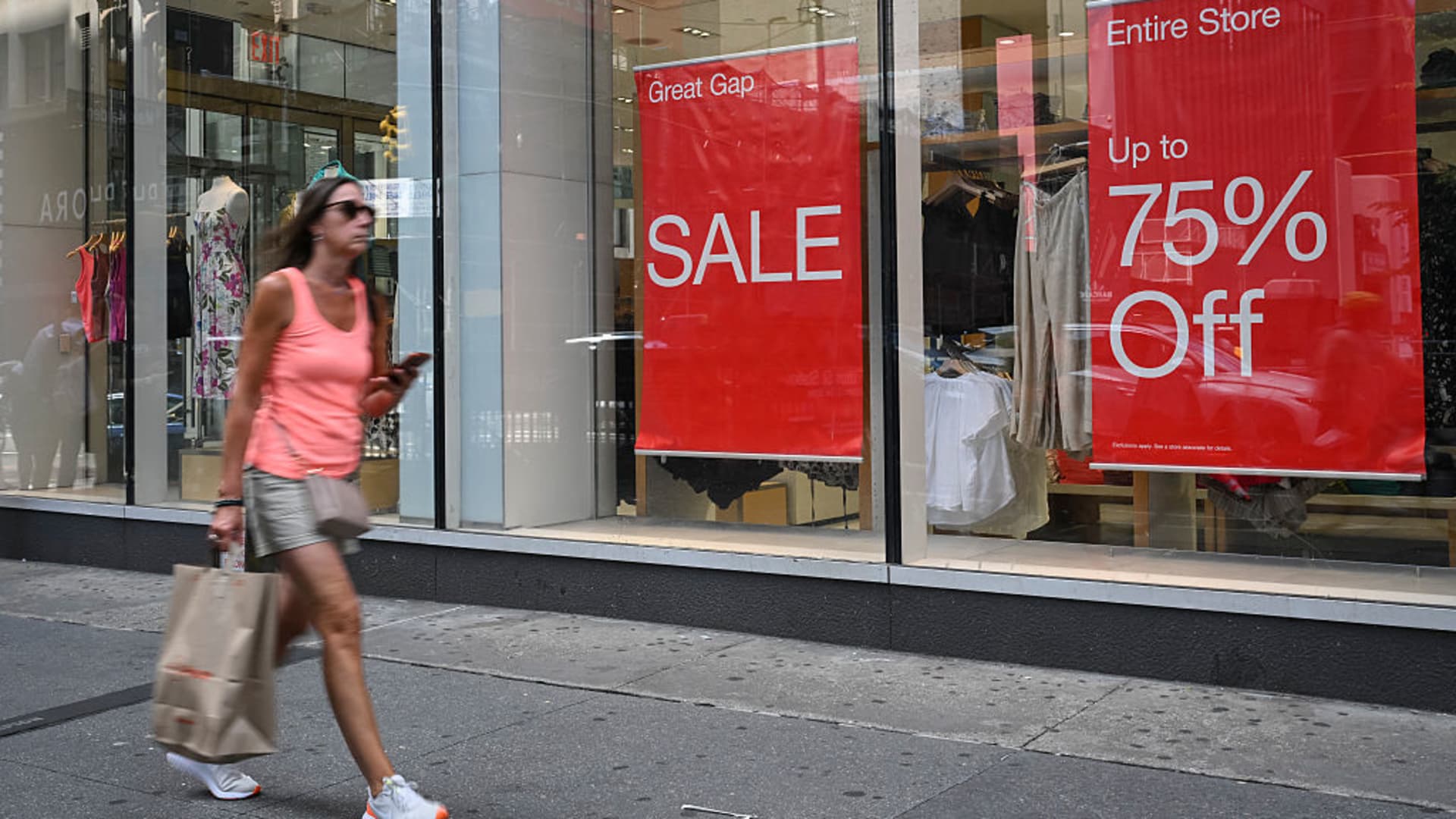U.S. consumers have proved economic pessimists wrong multiple times over the last few years, and they appear to be on their way to doing that again this summer. The June retail sales data came in hotter than expected, rising 0.6% month over month, the Census Bureau said Thursday. That easily topped the 0.2% monthly gain expected by economists, according to Dow Jones, and helped offset declines in prior months that were weighed down by weak auto sales. “Consumers are flexing their spending muscle again. After May’s slump, a 0.6% jump in retail sales shows that the American shopper is alive and well—and that matters for markets. Strong retail sales are like oxygen for the economy, and Wall Street is breathing a sigh of relief today,” said Gina Bolvin, president of Bolvin Wealth Management Group. .SPX 5D mountain Stocks rose on Thursday after a stronger-than-expected retail sales report. Some alternative data is also supporting the idea that the consumer is hanging in there. Bank of America U.S. economist Shruti Mishra pointed to strength in online spending around Amazon’s Prime Day and recent travel trends as encouraging signs. “Airport traffic has lagged 2024 levels for most of May and June. It was down 1.5% y/y in the last four weeks of June … but it has rebounded in July. In the first two weeks of the month, airport traffic is up 0.9% y/y. That’s encouraging,” Mishra wrote in a note to clients Thursday. Of course, one thing that has concerned many economists this year is the impact of tariffs, and many of those import levies keep getting delayed. The retail sales environment could change significantly if the various tariffs currently slated to start Aug. 1 do take effect, in which case there would likely be a new round of recession predictions from Wall Street. Along those lines, the Jefferies equities research team cautioned in a note to clients Thursday that the consumer sector could be approaching an “air pocket” as inflation tied to tariffs starts to hit. “More of our consumer respondents reported higher prices in six of the nine categories we track,” the Jefferies note said. — CNBC’s Michael Bloom contributed reporting.





